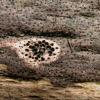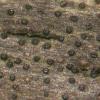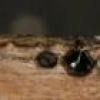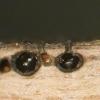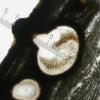
29-11-2024 21:47
Yanick BOULANGERBonjourJ'avais un deuxième échantillon moins mat

27-02-2026 17:51
 Michel Hairaud
Michel Hairaud
Bonjour, Quelqu'un peut il me donner un conseil p

27-02-2026 16:17
 Mathias Hass
Mathias Hass
Hi, Found this on Betula, rather fresh fallen twi

27-02-2026 12:56
Åge OterhalsFound on fallen cones of Pinus sylvestris in midle

27-02-2026 11:21
 Yannick Mourgues
Yannick Mourgues
Hi to all. Here is a specie that can may be relat

26-02-2026 15:00
Me mandan el material seco de Galicia, recolectada

24-02-2026 11:01
Gernot FriebesHi,found on a branch of Tilia, with conidia measur

23-02-2026 11:22
Thomas Læssøehttps://svampe.databasen.org/observations/10584971
Related to the thread of Daniel Ghysenlinck I know put data about my unidentified Eutypa collections which were made on Fagus sylvatica.
Description: Fruitbodies very inconspicuous, from some distance only a darkening of the wood. With the naked eye the ostioles could just be seen as tiny black dots on the blackish surface. The Stroma with the scattered perithecia is about 0.5 - 0.6 mm thick. Perithecia are about 0.4 mm broad and 0.3 mm high with a neck length of about 0.25 mm. About 0.15 mm of the neck is within the stroma and only some 0.1 mm protruding as a semiglobous structure (see photos).
Microscopy: Asci are typically long stalked with a spore bearing part of about 25-35 micrometers. Apical apparatus is very faintly and inconspicuously bluish in Iodine. Spores are brownish, allantoid and 6-9 x 1.8-2.2 micrometers with 7 x 2 beeing the average.
Ideas are very welcome. Ask if you need further morphological details.
Thanks very much
Stefan

I have not checked microscopic characters, but why not consider Diatrype decorticata ?
Yannick
This seems to be a good idea to follow. Thanks for the Input!
Stefan
Alain

I think Alain is right.
Yannick
This is definitly a name I came by during my researches. Can't remember why I discarded it again. Probably because there is little illustration and documentation on the species. But I will definitly focus on this now and compare characters with literature about E. lata.
Thanks again
Stefan
